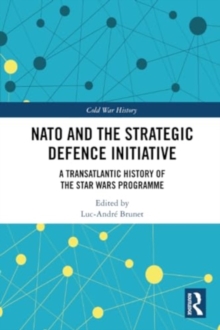
International Summitry and Global Governance : The rise of the G7 and the European Council, 1974-1991 PDF
Edited by Emmanuel (University of Glasgow, UK) Mourlon-Druol, Federico (European University Institute, Italy) Romero
Part of the Cold War History series
Description
This volume is the first detailed study of the emergence of regular and frequent heads of government meetings (summits), covering the period from the mid-1970s to the early 1990s. Summit meetings of heads of government have become 'banal' in today's world.
Yet they are a relatively recent practice that took off only in the mid-1970s.
The aim of the book is to explore the origins of this new feature of global governance in its historical context.
Why did heads of Western governments decide to regularly meet up in the European Council and the G7?
What were they aiming at? How were these meetings run and what consequences did they have?
How did other actors of international relations – states as well as non-state and/or transnational actors - react to this transformation?
Based on newly released archival material, International Summitry and Global Governance investigates the rise of regular international summitry and its impact on international relations.
The volume brings together the best specialists of this new field of historical enquiry in order to explore those features of global governance in their historical context, and open up an interdisciplinary dialogue with social scientists who have studied summits from their own disciplinary perspectives. This book will be of much interest to students of international history, Cold War studies, global governance, foreign policy and IR in general.
Information
-
Download - Immediately Available
- Format:PDF
- Pages:272 pages, 10 Tables, black and white; 3 Line drawings, black and white
- Publisher:Taylor & Francis Ltd
- Publication Date:05/03/2014
- Category:
- ISBN:9781317913702
Information
-
Download - Immediately Available
- Format:PDF
- Pages:272 pages, 10 Tables, black and white; 3 Line drawings, black and white
- Publisher:Taylor & Francis Ltd
- Publication Date:05/03/2014
- Category:
- ISBN:9781317913702










